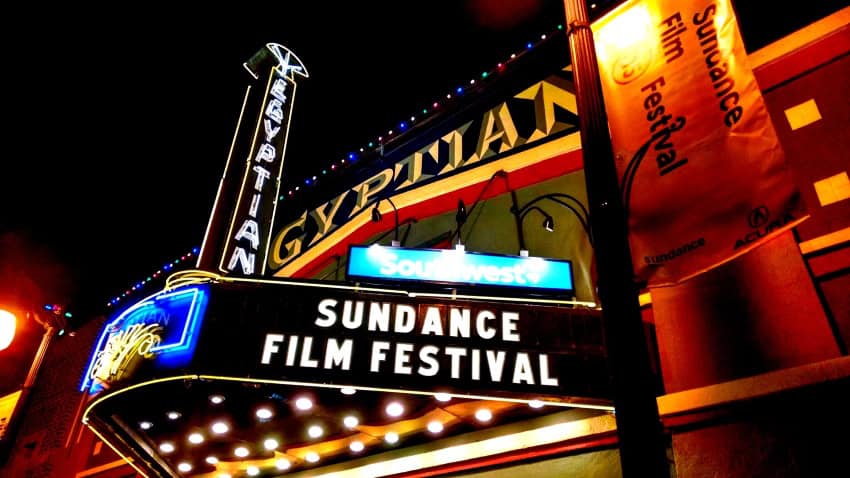As 2025 comes to a close, so does the year’s series of international film festivals, showcasing some of the most insightful and vibrant films from around the world. An impressive number of Mexican films can be counted among that acclaimed group.
The collaboration between Cinépolis and the Sundance Institute that brought the Sundance Film Festival: CDMX to Mexico City for a second year has further bolstered Mexico’s cinematic reputation, while Mexican filmmaker Carlos Reygadas was on the main competition jury at Cannes. Meanwhile, Mexican directors maintained a strong international presence across festivals, including at the British Film Institute’s London Film Festival (BFI), the Toronto International Film Festival (TIFF) and the Berlin International Film Festival.

A recurring theme of using nostalgia and childhood memory as lenses to explore Mexico’s history and sociopolitical memory and identity is evident in many of Mexico’s standout works this year, with notable mentions including Michel Franco’s erotic yet unnerving drama ”Dreams” and Urzula Barba Hopfner’s ”Corina.” But many more of the films recognized internationally this year also explore Mexico’s complex cultural history through drama, experimental filmmaking, animation and even mockumentary.
Here’s a look at some of the standouts:
El diablo fuma (y guarda las cabezas de los cerillos quemados en la misma caja)
Director: Ernesto Martínez Bucio
Genre: Drama
Set in 1990s Mexico City, ”El diablo fuma” follows five young siblings who move in with their schizophrenic grandmother after their parents disappear. Forbidden from leaving the property and increasingly isolated, the children inherit their grandmother’s religious fears and delusions, which begin to distort their fragile sense of reality. The house becomes a psychological playground where innocence is warped and memory becomes contaminated.
Visually emphasized by a shaky handheld camera, the film works to subvert the joys of childhood imagination, portraying it as vulnerable and haunted. Set during Pope John Paul II’s visit to Mexico City, Martínez Bucio critiques the generational weight of religious trauma.
The film was screened at the BFI and Barcelona’s D’A Film Festival and won Best Feature at the Berlin International Film Festival.
Olmo
Director: Fernando Eimbcke
Genre: Drama, Comedy
The Mexican-U.S. coproduction directed by Fernando Eimbcke is a coming-of-age story set in New Mexico in 1979. ”Olmo” follows a Mexican-American teenager desperate to attend a party hosted by his neighbor and crush, Nina. Left to care for his father, who has multiple sclerosis, while his mother works extra shifts to pay the overdue rent, Olmo and his best friend Miguel try to impress Nina with a stereo as their ticket in.
Shot in just 25 days, the film explores the miscommunications and suffocations of adolescence within a family facing real hardship. Eimbcke reconnects with the decade that shaped his own childhood, using warm, soft lighting to evoke a simpler time. Yet, the film goes beyond sentimentality, highlighting the linguistic and financial challenges of Mexican-American families in the 1970s.
“Olmo” was a hit at the Sydney Film Festival, at the Toronto International Film Festival and at BFI London, and was nominated for the Panorama Audience Award at the Berlin International Film Festival.
Yo Soy Frankelda
Directors: Arturo Ambriz, Roy Ambriz, Mireya Mendoza
Genre: Animation, Horror
Mexico’s first full-length stop-motion animation, ”Yo Soy Frankelda” is the creation of Roy and Arturo Ambriz’s Cinema Fantasma, with support from internationally acclaimed Mexican director Guillermo del Toro.
Featuring gothic puppets and a haunting score, the film delves into the subconscious of a ghostly 1870s female horror writer who conjures monsters from her imagination while plotting her escape from a haunted house.
Frankelda’s backstory as a rejected writer in a sexist publishing industry fuels her escapist nostalgia and fantastical storytelling, serving as resistance to her marginalization.
The film opened the Guadalajara Film Festival and was featured at the Morelia and Tokyo International Film Festivals, as well as France’s Annecy International Animation Film Festival. It won the Satoshi Kon Award for Excellence in Animation and received a Special Jury Mention at the Fantasia Film Festival in Montreal.
Tutti Frutti: El Templo del Underground
Tutti Frutti. El templo del underground | Doctubre Mx
Director: Laura Ponte
Genre: Documentary
Although it debuted three years ago, Ponte’s vibrant documentary returned for a special screening and director Q&A at the Hollywood Theatre during PDXLAFF this October. It revisits Tutti Frutti, a clandestine 1980s Mexico City dive bar that became a haven for the country’s countercultural movement.
A nondiscriminatory refuge for youth seeking alternative music, Tutti Frutti thrived on community and care, symbolizing artistic defiance before hypercommunication and globalization reshaped the music scene. Not unlike “Yo Soy Frankelda,” the documentary explores artistic resistance, but instead through a nostalgic lens that highlights Mexico’s youth counterculture and how Tutti Frutti shaped contemporary Mexican identity.
Autos, Mota y Rocanrol
Director: José Manuel Cravioto Aguillón
Genre: Comedy, Mockumentary, Music History
This sharp-witted mockumentary follows two friends as they plan a rock concert and car race that unexpectedly evolves into the infamous Avándaro Festival of 1971 in Valle de Bravo, dubbed Mexico’s Woodstock. Originally called the Avándaro Rock and Wheels Festival, this historic event — with an estimated attendance between 100,000 and 500,000, sparked a government crackdown on rock music due to its alignment with La Onda, a countercultural movement rooted in psychedelics, multidisciplinary artistic expression and anti-establishment sentiment.
“Autos, Mota y Rocanrol” blends Super 8 film and archival footage to create a vivid, nostalgic journey through the 1970s. The mockumentary format satirizes the fruitful chaos of the event in a way that underlines the spirit of youth counterculture and a restless liberal identity.
The film was an official selection at the Guadalajara International Film Festival and earned 13 nominations at Mexico’s 67th Ariel Awards. Internationally, it screened at multiple festivals, including the Portland Latin American Film Festival and the Newport Beach Film Festival.
No Nos Movarán
Director: Pierre Saint-Martin Castellanos
Genre: Drama, Political Satire
Written and directed by Iker Compeán Leroux and Pierre Saint-Martin Castellanos, and supported by FOCINE (a Mexican government fund), “No Nos Movarán” tells the story of Socorro, a defiant sexagenarian lawyer determined to find the soldier who killed her brother during the 1968 Tlatelolco massacre.
Merging documentary materials with fiction, the film uses political satire to confront trauma and loss. Inspired by Saint-Martin’s own mother’s memories, it offers a visceral tool for reckoning with the grief of Mexico’s political past and the challenge of finding peace without remaining trapped in it. Shot in black-and-white, the film combines drama, biting satire and dark comedy to explore the weight of memory and the risk of grief unraveling familial bonds.
The film won four of Mexico’s Ariel Awards in 2025, as well as top honors at several international film festivals, including the Guadalajara International Film Festival, Toulouse’s Cinelatino film festival and the Huelva Ibero-American Film Festival in Spain. It was also selected to represent Mexico at the 2026 Oscars and at Spain’s Goya Awards.
09/05/1982
Directors: Jorge Caballero and Camila Restrepo
Genre: Short film
This 11-minute short delivers a critical warning about the power of artificial intelligence to manipulate truth.
Its unique format challenges viewers to consider the ethical implications of technology’s ability to rewrite history — as what appears to be recovered footage of violence documented in an unspecified Latin American country during the 1980s is actually a digital fabrication, overlaid with an “official” radio broadcast to add a feel of authenticity.
By “reconstructing” this fictional event, “09/05/1982” critiques the instability of memory and the ease with which media can distort our historical narratives.
The short premiered at the Marseille International Film Festival and received acclaim at South Korea’s DMZ International Documentary Film Festival. It also was shown at the New York Film Festival and at the Toronto International Film Festival.
More than anything, Mexican filmmakers’ cinematic focus on the period between the 1970s and the 1990s reflects a 30-year nostalgia loop: a phenomenon where filmmakers revisit their formative years. This trend has also been observed in U.S. cinema, notably in the Reagan-era aesthetics and predigital childhoods of shows like “Stranger Things.”
An overview
Beyond escapism, these seven films offer a kaleidoscopic lens into the last 50 years of Mexico’s cultural memory, where everything from drama to mockumentary is being used to reckon with identity, trauma and resistance. Many of these films serve as illuminating, thought-provoking and sometimes downright fun primers on Mexican social history, making them worth your while to track down and put on your watchlist.
Millie Deere is a freelance journalist
